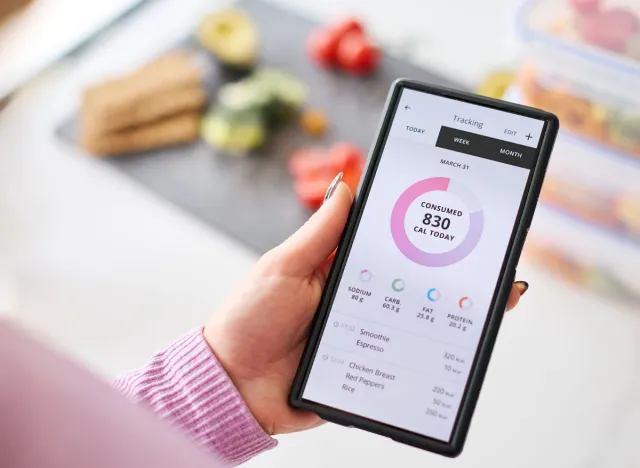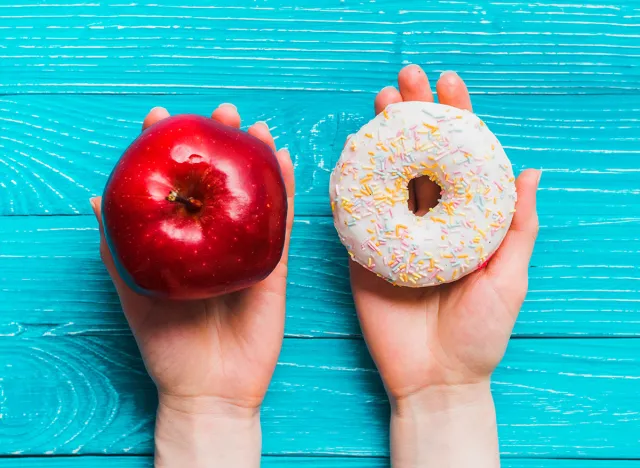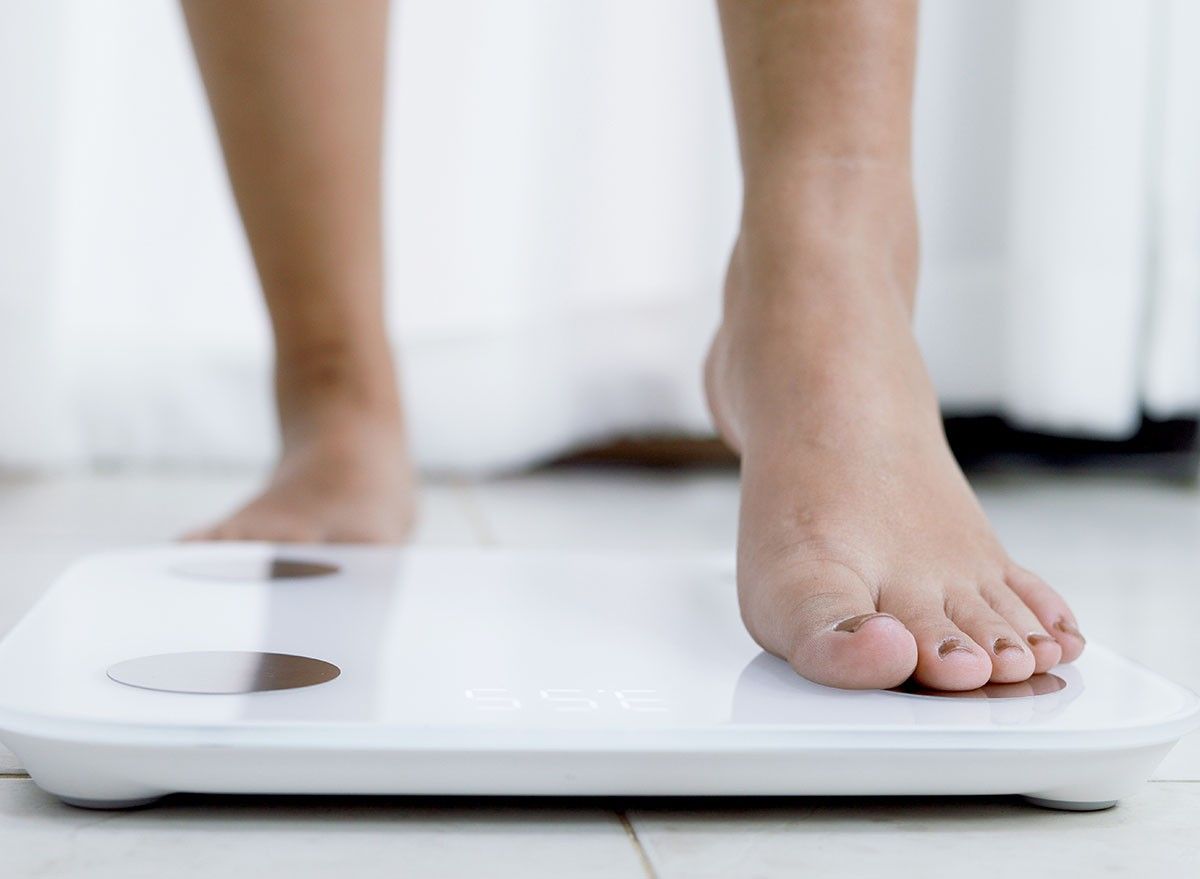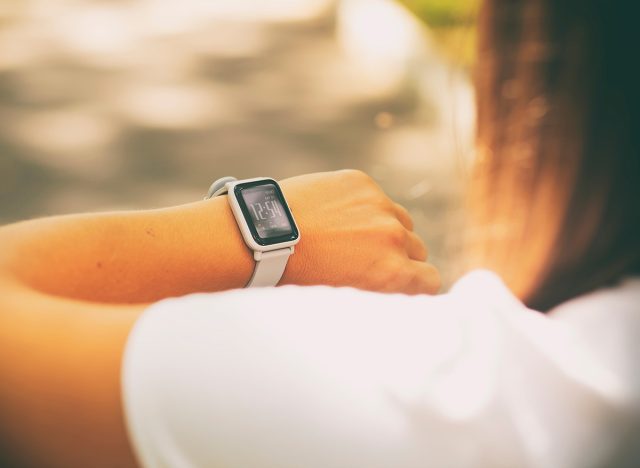I'm a Nutritionist and This Is the One Habit Worth Adopting to Transform Your Body

As a personal trainer with over ten years of experience and a registered dietitian nutritionist for nearly two, I've had thousands of weight loss conversations, and one undeniable truth has emerged: there's no universal diet or workout plan that guarantees success. However, one habit consistently drives long-term results—tracking your progress. Whether it's through food journaling, logging workouts, or taking progress photos, documenting your journey provides invaluable clarity and accountability, making all the difference in achieving lasting success.
There Are 5 Fundamental Pillars of Weight Loss Success

In my experience, weight loss conversations always come back to five fundamental pillars: awareness, accountability, pattern recognition, celebrating wins, and consistency. Tracking brings all these elements together, creating a powerful synergy between diet, exercise, sleep, and stress management. While many clients are initially resistant to the idea of journaling or logging their habits, those who stick with it often realize how transformative it can be. They begin to see how small choices add up to meaningful change and understand that progress isn't always linear—but it's always happening. It's about having a full picture and trusting that every effort, no matter how small, counts.
Increases Awareness

Many people underestimate how much they eat or overestimate their physical activity. Tracking provides a clear, unbiased picture of your habits and highlights areas for improvement, helping you stay on top of your goals.
Builds Accountability

Whether you're logging calories, workouts, or journaling daily activities, writing things down forces accountability. A 2019 study published in Obesity showed that participants who tracked their progress—even through simple smartphone apps—had higher adherence to their weight loss plans.
Identifies Patterns

Tracking helps you recognize patterns in eating, exercise, and emotional states. You may find that certain foods make you sluggish or that poor sleep affects your workout consistency. This insight allows you to make smarter adjustments to your routine.
Celebrates Wins

It's easy to overlook small victories in a weight loss journey. Tracking helps you acknowledge every step forward—whether it's losing half a pound or hitting a fitness milestone. These small celebrations fuel your motivation and keep you engaged.
Consistency

The secret to any successful weight loss journey is consistency. It's not about perfection but about showing up regularly—even when progress feels slow. By tracking your meals, workouts, or sleep habits, you build momentum over time. Small, consistent actions compound into lasting results.
They Will Help You Stay on Course

By focusing on these five pillars (which can be done by tracking—the simplest a habit tracker), tracking becomes not just a tool but a guiding force in your weight loss journey, helping you stay the course and reach your long-term goals.
Why This Really Matters?

If you are still not convinced, here's how the little things you overlook can sabotage your weight loss goals. Even seemingly insignificant choices, when left untracked, can accumulate and make a major difference in your progress.
1. Food Intake

If You Don't Track It: You may not realize that an extra handful of nuts, a few bites of your kids' leftovers, or an extra tablespoon of salad dressing can add up to hundreds of unaccounted-for calories. These small additions can push you over your calorie limit without you noticing, slowing down your weight loss.
Why It Matters: Tracking what you eat brings awareness to your calorie consumption and helps ensure you're staying within your deficit goals. Most people underestimate how much they eat, leading to overeating.
How to Start: Use a food diary app (e.g., MyFitnessPal) or a notebook to log everything you eat, including snacks and drinks.
Measure portion sizes using cups, spoons, or a food scale for accuracy.
Pro Tip: Don't skip logging indulgent meals; the goal is awareness, not perfection. Add a section for emotions or stress that might accompany certain food choices.
Common Issue/Complaint: "I don't have time to log everything."
How to Overcome: Pre-plan meals or use shortcuts like scanning barcodes in apps. Track once a day rather than after every meal.
2. Water Intake

If You Don't Track It: Many people confuse thirst with hunger, leading to unnecessary snacking. Not drinking enough water can also affect your metabolism, digestion, and energy levels, making it harder to stay on track with your weight loss.
Why It Matters: Hydration supports digestion, reduces cravings, and promotes a sense of fullness, preventing overeating. Proper water intake is crucial for your overall health and weight loss success.
How to Start: Track daily water intake and aim for at least 8 cups (64 oz), adjusting based on activity levels.
Pro Tip: Carry a refillable water bottle to make it easy to drink throughout the day.
Common Issue/Complaint: "I forget to drink enough water."
How to Overcome: Set reminders on your phone or use apps that prompt you to drink water at regular intervals.
3. Hunger and Fullness Cues

If You Don't Track It: You might find yourself eating out of boredom, stress, or habit rather than actual hunger. Over time, this can result in consuming far more calories than you need.
Why It Matters: Learning to recognize hunger and fullness cues helps prevent overeating and promotes mindful eating. Understanding when you're truly hungry versus eating out of boredom or stress can make a significant difference in your progress.
How to Start: Before and after each meal, rate your hunger and fullness on a scale of 1-10.
Reflect on why you're eating—are you truly hungry, or is it driven by emotion or habit?
Pro Tip: Eat slowly and without distractions to help you tune into your body's hunger signals.
Common Issue/Complaint: "I don't know when I'm full."
How to Overcome: Practice portion control by starting with smaller servings and reassessing your fullness halfway through the meal.
4. Exercise and Activity Levels

If You Don't Track It: You might overestimate how much you're exercising, leading to a false sense of accomplishment. This could mean you're not burning as many calories as you think, and weight loss may stall.
Why It Matters: Tracking workouts helps you balance diet with physical activity. It also allows you to monitor improvements and avoid plateaus. Logging the type, duration, and intensity of exercise provides a complete picture of your efforts.
How to Start: Use a fitness app or a journal to log each workout: duration, type (cardio, strength), intensity (moderate, high), and how you felt during/after.
Track daily steps with a pedometer or smartphone—aim for at least 7,500 to 10,000 steps per day.
Pro Tip: Include rest and recovery days in your log to ensure you're not overworking your body, which can slow progress.
Common Issue/Complaint: "I only have time for cardio."
How to Overcome: Even quick strength training circuits (e.g., 15-20 minutes) can make a big difference. Incorporate bodyweight exercises at home.
5. Steps

If You Don't Track It: It's easy to think you're moving enough throughout the day, but sitting for long periods can slow your metabolism and reduce calorie burn. Without tracking, you may not notice how sedentary your days actually are.
Why It Matters: Tracking daily steps helps ensure you're moving enough throughout the day. Regular movement supports your metabolism and overall caloric burn.
How to Start: Use a pedometer, fitness tracker, or smartphone app to track daily steps—aim for 7,500 to 10,000 steps per day.
Pro Tip: Incorporate more steps by taking the stairs, parking farther away, or going for short walks during breaks.
Common Issue/Complaint: "I sit all day and can't hit my step goal."
How to Overcome: Break up long periods of sitting by setting hourly reminders to get up and walk around for a few minutes.
RELATED: 3 Reasons Why You Should Eat Bananas Every Day to Burn Fat
6. Sleep Quality and Duration

If You Don't Track It: Lack of sleep increases hunger hormones, which can lead to overeating, cravings for unhealthy foods, and lower energy levels for exercise. If you're not tracking your sleep, you may not connect poor sleep to weight gain.
Why It Matters: Sleep directly affects hunger hormones, making it harder to control cravings when you're sleep-deprived. Tracking sleep helps you identify patterns that might interfere with your progress, such as late-night snacking or lack of energy for workouts.
How to Start:
- Use a sleep tracker (e.g., Fitbit or a sleep app) to log total hours of sleep and interruptions.
- Aim for 7-9 hours of quality sleep each night.
- Note how your energy levels or hunger vary based on sleep.
Pro Tip: Establish a consistent sleep routine—go to bed and wake up at the same time every day, even on weekends, to improve sleep quality.
Common Issue/Complaint: "I can't fall asleep early enough."
How to Overcome: Create a wind-down routine that includes turning off electronics 30 minutes before bed and avoiding caffeine in the late afternoon.
7. Stress/Mood Journal

If You Don't Track It: Unmanaged stress can lead to emotional eating, skipped workouts, or disrupted sleep, all of which negatively impact weight loss. Without tracking your stress and emotions, you may not see the connection between stress and poor choices.
Why It Matters: Stress can trigger emotional eating, disrupt sleep, and sap motivation to exercise. Tracking your stress levels throughout the day helps you understand how stress affects your eating habits and exercise performance, allowing you to manage it better.
How to Start: Track stress levels (1-10 scale) throughout the day and note any emotional triggers (e.g., stress eating, cravings).
Reflect on how stress affects your motivation for exercise or food choices.
Pro Tip: Pair your mood tracker with mindfulness techniques like deep breathing or meditation for stress management.
Common Issue/Complaint: "I don't have time to manage stress."
How to Overcome: Start with 5-minute breathing exercises or short mindfulness sessions. Build in stress relief like walking or stretching into your routine.
RELATED: I Lost 20 Pounds in 4 Months And Here's What I Eat in a Day
8. Progress Photos

If You Don't Track It: The scale might not move for weeks, which can be discouraging. Without photos, you miss the physical changes—like muscle gain or fat loss—that don't show up on the scale.
Why It Matters: The scale doesn't always tell the full story of your weight loss journey. Progress photos provide a visual way to see changes in your body composition, including muscle gain and fat loss, even when the number on the scale stays the same.
How to Start: Take photos every 2-4 weeks in the same outfit, same location, and at the same time of day for consistency.
Capture front, side, and back views to fully track your progress.
Pro Tips: Take front, back, and side photos every week, at the same time of day and in the same outfit. Use good lighting and consistent backgrounds to ensure accurate comparisons.
Common Issue/Complaint: "I don't like taking photos of myself."
How to Overcome: Focus on the long-term transformation. Seeing even small visual changes can boost your motivation and keep you consistent.
Solution: Habit Tracker

Solution: Habit Tracker
Consistency is key in any weight loss journey. Using a habit tracker combines all of the above aspects into one simple tool, helping you stay on top of your daily actions. It allows you to easily monitor habits like drinking water, walking, eating meals, or even managing stress.
How to Start: Choose 3-5 daily habits to track (e.g., drink 8 cups of water, walk 30 minutes, log food intake).
Use a simple bullet journal, app, or printable chart to check off your habits each day.
Pro Tip: Keep it simple—don't aim for perfection. Missing a day or two won't derail your progress as long as you get back on track.
Common Issue/Complaint: "I can't remember to track everything."
How to Overcome: Set daily reminders on your phone or create visual cues (e.g., sticky notes) around your house to prompt habit tracking.
Should You Track Weight and Measurements?

Tracking weight and measurements can be both helpful and discouraging, depending on how it's approached. While body fat tests like DEXA scans are the most accurate, they're not always accessible. Self-measurements can be tricky too—especially when trying to measure consistently on your own. If you're tracking any measurements, focus on waist circumference using your belly button as a center point.
Why Track Weight?

Research shows that regular weight tracking can help with weight loss by keeping you aware of trends over time. However, it's important not to fixate on daily fluctuations, which can lead to frustration. If you feel comfortable with it, tracking weight along with progress photos can be a powerful combination.
If You're Going to Track Weight, Keep These Tips in Mind

- Weigh yourself at the same time of day for consistency.
- Avoid getting discouraged by small fluctuations; focus on the long-term trends.
- Pair weight tracking with progress photos (taken weekly) to better see how your body is transforming.
- By focusing on some or all of these essential tracking areas, you'll build a foundation for consistent progress and long-term transformation. Lastly, please consult with your doctor or a dietitian before making any significant changes to your diet or fitness plan.
And if you enjoyed this article, take advantage of these 15 Quick Ways to Lose Body Fat Percentage in a Week.




